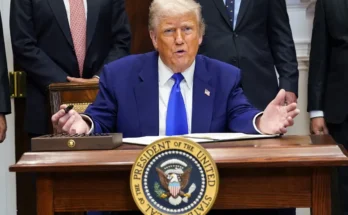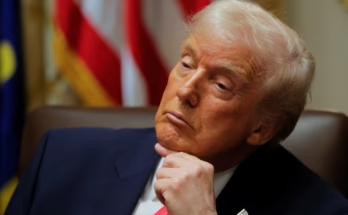Vice President JD Vance’s recent comments about Donald Trump’s health have ignited a wave of concern and speculation across the U.S., especially after a viral “Trump Is Dead” trend flooded social media. Vance, speaking to USA Today and other outlets, insisted that Trump is in “incredibly good health,” but his phrasing—“If, God forbid, there’s a terrible tragedy, I’m ready to step up”—struck many as ominous.
The remarks came amid renewed scrutiny of Trump’s physical condition. Photos showing bruising on his hands and swelling in his ankles circulated online, prompting the White House to confirm that the 79-year-old president has chronic venous insufficiency (CVI), a benign but age-related condition. While officials downplayed the diagnosis, Vance’s readiness to assume the presidency fueled public unease.
“He’s the last person making phone calls at night, and the first person making them in the morning,” Vance said, emphasizing Trump’s stamina. Yet, critics found his tone unsettling. “What an incredibly odd thing to say,” one user posted on X. Others accused Vance of foreshadowing a transition of power, especially given his rising profile and Trump’s refusal to endorse him for 2028.
Vance’s statement followed Trump’s own rebuttal on Truth Social: “NEVER FELT BETTER IN MY LIFE,” he wrote, alongside a photo of himself golfing. But the timing—just days before Trump’s surprise Oval Office announcement—only intensified speculation. Some believe the announcement may involve relocating the U.S. Space Command, while others suspect deeper political maneuvering.
The backdrop is tense: Trump survived two assassination attempts during the 2024 campaign, and his age makes him the oldest sitting president in U.S. history. Vance, meanwhile, has been gaining traction as a possible successor, with CPAC polls showing him far ahead of other GOP contenders.
Whether Vance’s comments were a calculated move or a genuine reassurance, they’ve stirred a national conversation about succession, transparency, and the fragility of leadership. In an era where every word is dissected and every bruise becomes a headline, the line between reassurance and alarm has never been thinner.


